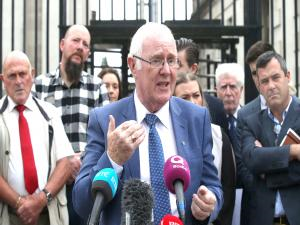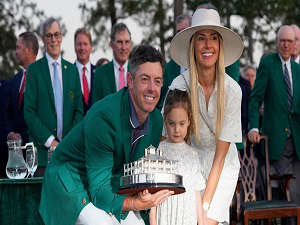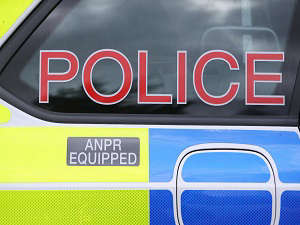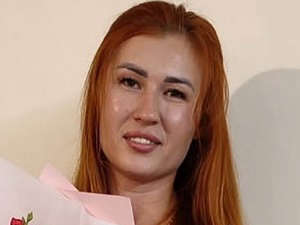
By Rebecca Black, PA
Northern Ireland's police chief is acting unlawfully in failing to conduct an independent probe into alleged state collusion with a notorious loyalist murder gang, a court has ruled.
At the Court of Appeal in Belfast, Lord Chief Justice Sir Declan Morgan said the police had not honoured the "legitimate expectation" of bereaved relatives that an overarching investigation into the Glenanne gang would be held.
Former Police Service of Northern Ireland (PSNI) chief constable Sir George Hamilton had appealed against a 2017 judgment that found against the police's decision not to complete work being conducted by the independent Historic Enquiries Team (HET) prior to its disbandment.
The Glenanne gang was a unit of the Ulster Volunteer Force (UVF) that counted rogue security force personnel among its members.
Operating mostly in Tyrone and Armagh, the gang has been blamed for around 130 sectarian murders during the 1970s and 1980s.
There was standing room only in court on Friday morning as families of those killed filled the public gallery and lined the aisles to hear Sir Declan deliver the response to the appeal.
Outside the court, supporters - including other bereaved families such as those who lost loved ones in disputed shootings at Ballymurphy in 1971 - held banners in solidarity.
Sir Declan said the court would not direct new Chief Constable Simon Byrne on how the independent officers should proceed, but he warned that if there are any undue delays in appointing the officers to address the legitimate expectation, he would be at risk of further legal action.
The HET had partially completed a probe into the activities of the Glenanne Gang before its work was halted by PSNI commanders.
The HET had examined individual murders committed by the gang, but had not undertaken an overarching thematic review of the collusion allegations.
The PSNI's decision to stop the HET review was challenged by way of judicial review by the family of one of the gang's victims.
The judicial review was taken by the family of Patrick Barnard, who was killed in a bomb blast in Dungannon in 1976.
Family members of some of those killed by the gang welcomed the judgment outside court.
Patrick Barnard's brother Edward noted that 20 relatives of Glenanne victims had died since the initial judicial review proceedings commenced in 2015.
He claimed the police had treated the families like "pestilence".
"For the families here today, we will keep on fighting for the truth for our dead relatives, because with the truth we honour them," he said.
Tracey Mulholland, whose grandfather Arthur Mulholland was killed in 1975, said: "Let this begin now, as the judges have ruled, let it begin immediately, so that we don't lose any more of our people.
"This isn't going away - there are grandchildren coming down the line and this will go on. We will fight and we will remain strong so that truth and justice can be given to these families."
She said the families felt vindicated.
"We all knew there was collusion," she said. "We have been vindicated because we were called liars in the past. It has taken this long, people here have waited over 40 years for something like this to happen - it's a disgrace.
"The new chief constable needs to do the right thing and not have grandchildren coming after these people to fight for that cause."
Ms Mulholland and Mr Barnard both criticised Sir George for not attending the court hearings in person.
Eugene Reavey, whose three brothers were murdered by suspected members of the Glenanne Gang in south Armagh in January 1976, said: "I would like everybody to know - it was not the UVF who shot my brothers, it was the security forces - the UDR and the RUC and the British Army."
Mr Reavey said the investigation needed to be time-limited to five years.
He said he was not interested in compensation and all he wanted was the truth.
"It's not hard to tell the truth," he added.
Lawyer Darragh Mackin, who represents a number of the families, said it was a "momentous day" for the bereaved relatives.
"It has been a long, long road to get to this day but thanks to publications, documentaries and now court judgments these families have been exonerated, they have been vindicated, the court has told us today what we always knew - that there was a state policy of collusion relating to the Glenanne series," he said.
"The time has now come for justice for the Glenanne families and what we now do is we call urgently upon the new chief constable to learn from the mistakes of the previous chief constable and ensure this investigation begins expeditiously and without delay - these families have waited long enough for the truth and it's now time that truth and justice was publicly reported in a public document with the police signature at the top of it."
Commenting on today’s judgment Chief Constable Simon Byrne said: “Our thoughts first and foremost, are with the Barnard family and those with them in court today.
"They like too many other families have suffered as a result of the Troubles and, understandably, they continue to seek answers in respect of the deaths of their loved ones.
“I accept today’s judgment and, while we will take time to consider the fullness of its implications, we will now commence work to appoint the Independent Police Team to conduct an analytical report on collusion as ordered by the court.”


 Police investigating Arson Attack in North Belfast
Police investigating Arson Attack in North Belfast
 McIlroy honours omission came despite Stormont nomination
McIlroy honours omission came despite Stormont nomination
 Police seize ‘significant quantity’ of drugs following chase
Police seize ‘significant quantity’ of drugs following chase
 Woman dies in hospital after road crash in Co Fermanagh
Woman dies in hospital after road crash in Co Fermanagh